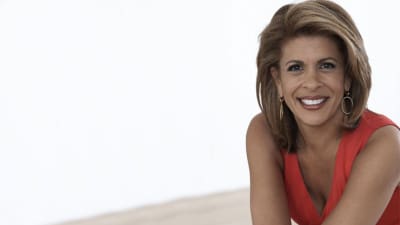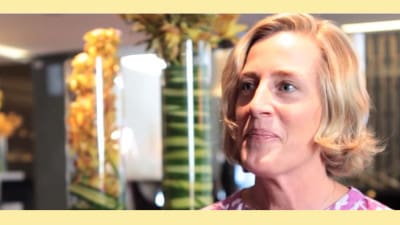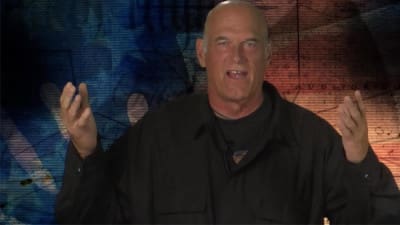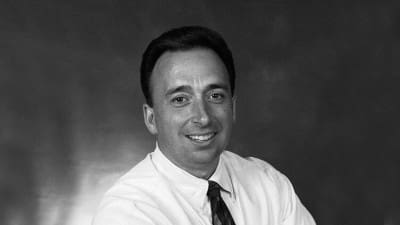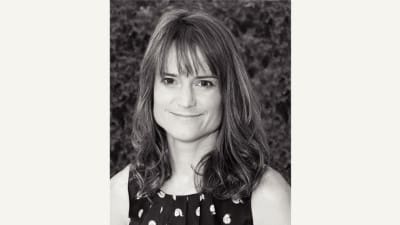Don’t tell Hoda Kotb you can’t get a job in television. Not unless you’ve lived in your car for weeks traveling cross country in the same interview suit to find one like she did, that is. “I do think if you are tenacious, somebody will hire you,” she says.
Kotb speaks from experience: The Today show anchor who now sits alongside Kathie Lee Gifford for the show’s female-centric fourth hour was so ” in love” with the news business, she endured 27 rejections before landing her first on-air gig for a CBS affiliate in Greenville, Miss. in 1988. She was a woman on a mission: “I was literally driving around the country in my mom’s car in the same outfit. I slept in that car,” Kotb recalls.
Also on Mediabistro
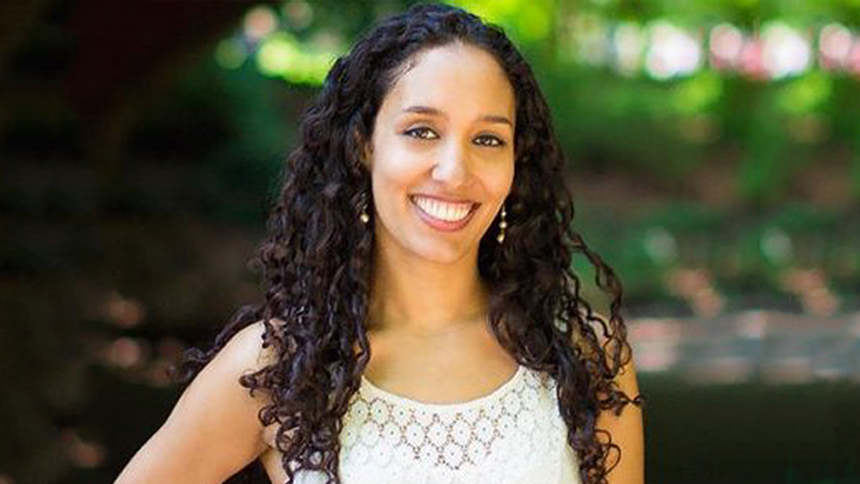

“I had one job interview in Richmond, and the news director watched my tape and said, ‘I’m sorry, you’re just not good enough for Richmond.’ That had not dawned on me that I was not getting that first job. As I was leaving, the guy said, ‘I have a buddy of mine in Roanoke, Virginia who will hire you. Drive there tonight and you’ll catch him.’ So I drove to Roanoke that night, and I met the news director there and he said, ‘I’m sorry. but you’re not ready for Roanoke.’ I thought, ‘Who in the hell is not ready for Roanoke?’ Apparently me. As I was leaving that place, he said, ‘I’ve got a buddy of mine who is hiring in Memphis, but you’ve got to catch him in the morning. So I drove across Tennessee. I met that news director the next morning and he put my tape in and said, ‘No.'”
But then, Kotb says, she got lucky: “As I was driving home, I got lost and I wound up in the Panhandle and there was a television station with a sign — you know how they say, ‘God gives you a sign?’ It said, ‘Greenville, our eye is on you,’ and it had the CBS eye. I walked in there and I gave the guy my tape, and he watched this horrible, terrible tape. He looked at me, and I’ll never forget what he said: ‘I like what I see.’ I burst into tears and he hired me that day. If it wasn’t for that guy on that day, I’d be in PR. I was at the end, out of gas, and I’d done everything I could. When they asked us to bring somebody on the Today show who changed the course of our life, I brought on Stan Sandroni, that news director from Greenville, Mississippi.”
Name: Hoda Kotb
Position: Co-anchor, the Today show’s fourth hour
Resume: Joined Today in August 2007; correspondent for Dateline NBC since April 1998. Began her broadcast career in 1986 with CBS News as a news assistant in Cairo, Egypt. Landed her first anchor gig at WXVT-TV, the CBS affiliate in Greenville, Miss., in 1988. Worked at various local stations in Florida and Illinois and anchored the 10 p.m. news at WWL-TV, the CBS affiliate in New Orleans, from 1992-1998.
Birthdate: August 9, 1964
Hometown: Born in Norman, Okla., “but I grew up in Alexandria, Virginia.”
Education: Virginia Tech: BA, Journalism
Marital status: Divorced
First section of Sunday Times: “‘The Week in Review.’ I usually read Maureen Dowd and all those guys in the back, and I work my way around.”
Favorite TV show: “Law & Order — all of them.”
Guilty pleasure: “Pop Tarts.”
Last book read: “I just finished Elizabeth Berg’s new one, Home Safe, where her husband died and she’s out on her own. She’s a writer teaching writing classes and she’s trying to get back on her feet teaching writing again. I like her writing.”
Fresh out of school, you were a news assistant in Cairo, and now you’re on the Today show chatting with Kathie Lee. How would you characterize your career path?
I think a lot of it was just timing and luck along with hard work. A lot of people work hard, but I think I got lucky with timing. While I was working in a place, I fell in love with that place. I wasn’t about, ‘What’s the next place?’ When you fall in love you really connect, so when I was in Greenville, Miss., I was in.
I read all the local papers, I went to the local haunts, I made good friends. I enjoyed it when I was there, and then when I got my next job in Illinois, it was the same thing. I felt like I became part of the fabric of the place. When that happens, you’re more into your stories and you get better.
There are people who work and think, ‘I gotta get out of here. What am I doing here?’ If you live like that, you’re not going to put out good stories or anything for your reel.
But I do think a lot of it is luck and timing. I was working in New Orleans when Elena Nachmanoff, who is one of the vice presidents here [at NBC], saw some of my work and asked me to come up for an interview. You just get lucky sometimes.
Did you always know you wanted to be in television?
Yeah. I started off just wanting to do it because I liked the live element. I always thought newspapers were yesterday, and I like the current. I wasn’t one of those people who thought, ‘I’m going to be at the network by the time I’m 30.’ I just lived where I lived, took the next step, and moved on.
What did you watch growing up? Anyone on television that caught your eye and made you think, ‘I want to do what they do?’
My dad used to grill us at the dinner table about current events and out of sheer panic, you start learning things. Because of that, I became more interested in learning things. In college I covered an election, and I thought that was interesting. I watched all the great broadcasters, like Barbara Walters. I remember when she interviewed Anwar Sadat and I thought, ‘She’s interviewing the president of Egypt, and it seemed like a conversation.’
I thought that was so cool. There were a lot of women who were breaking barriers, and they made you think, ‘If they could do it, why can’t I?’
Back in the ’80s when you were starting out, there wasn’t a lot of diversity among broadcasters. As a woman who had an unusual last name and didn’t fit the blonde news babe stereotype of the era, what sort of obstacles did you encounter?
My parents are Egyptian, and they came here from Egypt and were so into assimilation. Everyone was to assimilate if you were an immigrant. It wasn’t ‘us and them.’ My parents made us red, white and blue when I was young. You know your name is funny and your hair is frizzy and you look a little weird, but you don’t know it’s because of that.
So throughout my career when I was rejected so many times, it wasn’t because of my background. It was because I wasn’t good. I knew that. I never dawned on me maybe they don’t want me because of ‘X.’ It’s not a racial thing for me. I didn’t see the world that way. So when things didn’t go my way, I just assumed I’m going to get mine somewhere else.
I don’t want to be all Pollyanna about it, but that wasn’t how I saw it. I just kept doing my thing. I’m not lugging that baggage around, which makes your life so much easier when you’re not searching for the answer to ‘Why didn’t I…?’ — because there are going to be a thousand reasons why.
I read in the clips that you were a member of the Delta Delta Delta sorority, which makes sense because when I watch you and Kathie Lee you remind me of college roommates that spend an awful lot of time together.
(Laughs) I was the pledge trainer! Throughout my college years, I lived in the Tri-Delt letters. Some people think sororities are silly, but you learn so much about managing people and learn about all different kinds of women. I loved it. I cried when I left college because of that. It was my thing.
So you and Kathie Lee are like grown-up sorority sisters.
(Laughs) With Kathie Lee, she’s insane — completely insane. She’s funny as all get out. She comes out with stuff and you think, ‘Where on Earth did that come from?’ We get along on the air, and we hang out off the air. For a lot of anchor teams that’s sort of a rare thing — you clock in and clock out.
I liked her when I first met her because she has this sense that she just doesn’t care.
She’s not going to be safe.
I spent my whole life being safe in journalism. I stayed within the margins; I read the prompter and followed what was written. Suddenly, to be set free of that — just her and me sitting there — can be scary because you have to be with some who is not afraid to push the margins, otherwise it’s dull. There has to be trust; otherwise, you can’t let go. There’s a trust factor there.
Are you guys still doing your once-a-week Broadway thing on Wednesdays? What else do you do together?
Yeah, but we’re taking a break now because we’ve seen everything. We do Michael’s usually or some kind of a lunch on Wednesdays and then see a show. I spent Fourth of July at her place in Nantucket. I went with her a few weeks ago to her place in Florida. My mom and I went to her house in Greenwich for Thanksgiving, and her mom was there. It’s really easy with us.
The fourth hour of Today is devoted to much lighter fare than you’d done in other jobs. Do you ever miss doing ‘hard news?’
I get to do Dateline, which is my other job. We did lots of hours of Michael Jackson coverage — because I have that, I still get to have my hand in the pot. I need it. I did nothing but hard news throughout my whole career, so in the last year and a half, it’s sort of switched.
I’m still interested in all of it. When there’s a big story, I want to be on it.
You disclosed your battle with breast cancer a few years back and documented a lot of what you went through for broadcast. How did that feel being the story as opposed to covering it?
I was reluctant to do it. A producer friend of mine said, ‘Why don’t you document it and then do what you want with the tape?’ We documented it, and the whole ordeal was surreal.
When you’re healthy and you don’t see anything coming, and someone tells you something and the next thing you’re talking about is major surgery, a mastectomy, reconstruction and post-treatment — You just can’t believe they’re talking about you. It’s like someone hit you with a baseball bat.
It was one of those things. I journaled. The camera was with me — and sometimes you don’t want to burden someone, so it was nice to just get it out. It was a really hard time. I just pushed through. In my journal, after every entry, I wrote the word ‘forward’ because I kept thinking just, ‘One more day.’ At the end, you’re out of the weeds.
I still remember the day I realized there was a mini silver lining. I was in bed, and I was jolted out of it when I realized these four words: You can’t scare me. I remember thinking, ‘That’s what I get from this whole thing.’ It changes your perspective on things.
It also made me more fearless professionally to ask for things. I usually waited until I was noticed. This was one of the first times I stepped out and said, ‘I’d like to host the fourth hour.’ I just went and saw Jeff Zucker and Steve Capus and just asked.
So when this job came up you approached them?
Yes. It was all after the surgery. I’ll be honest — I think I would have waited for them to come to me otherwise. They may not have. Suddenly I thought, ‘Why not?’ You get one bite of the apple. It was a weird empowering thing in the end.
How does having something like this happen to you affect the way you deal with people who are coping with difficult situations? Do you feel like you’ve become more empathetic?
I think once you’ve been on your knees — once you know how it feels to be that vulnerable, you can’t help but deal with people in a more sensitive way. I thought I was sensitive before, but I don’t think you realize before it’s you.
Ann Curry interviewed me [about having breast cancer], and I remember being really scared being that person putting your trust into someone else’s hands. It’s a scary thing to do. Once I realized just how vulnerable you are sitting there, it raised the sensitivity level for me when I’m interviewing other people. It was there already, but not enough.
You’re a Virginia Tech alum and you spoke at their commencement. What was that like for you?
To be asked to speak at your college commencement is astonishing. It was a huge stadium filled with parents and kids. It was a year after the shooting. I just wanted to do right by them because it was my house. I remember what it was like to be sitting there, and I just wanted to leave them with something. When I was graduating, I don’t even remember who my speaker was. Who remembers?
So I kept thinking, ‘Just give them something to take away.’ It kind of unburdened me a little bit. I talked a little bit about the massacre, but in a healing way.
These kids were going out to a scary world, so I told them my job search story. It was great to be back on that campus. In that huge stadium filled with a zillion people, the bleachers were full and in the front row there was this kid who was totally dead asleep. (Laughs) I couldn’t take my eyes off that kid.
Everything quickly snaps into perspective.
What the best advice you have for someone to get into the business now?
Because it’s so tough, people are going to drop out because they get discouraged. But if you are in love with this profession — and I do think it’s important to find something you’re in love with — the job is going to be there.
In 1987, there was a stock market crash; no one was working, so it was kind of the same thing — not as severe. When I was driving around looking for jobs, most people would have quit after the fourth or fifth rejection. I was stubborn and stupid and kept going showing that bad tape over and over again.
I promise you, I could put a graduate in a car, send them across the country, and if they drove everywhere, someone would hire them. It’s just about how far you’re willing to go. And if you’re not willing to go that far, then you’re probably not going to be that good at the job anyway.
Let people drop out; you stay in.
What would you say has been your greatest success?
Oh Lord, I don’t know. I guess it was the day I was in New Orleans, and I got the phone call from Elena [when] she said, ‘You got it.’ I said, ‘Put it in a sentence for me’ because I wanted to remember the moment. She said, ‘You are a correspondent for Dateline NBC.’
I just freaked. I called my mom, who sat in the same cubicle at the Library of Congress for 25 years, and she stood up and said, ‘My daughter is working at NBC!’ People were all clapping. I remember thinking, ‘This is the best moment ever.’
And your biggest disappointment?
Since both happened at the same time, the end of my marriage and the illness.
They both happened in the same month.
The same month? That must have been really hard. How long were you married for?
Yeah. I knew him for 10 years, and we were married for two. I think sometimes when you have two really big things to deal with in your life, you only have so much grief to go around.
Sometimes when you have to share the grief, it sounds odd, but it feels a little less burdensome because you can only give so much to worrying about your illness if your marriage isn’t right, and you can only think so much about your marriage dissolving if you’re sick.
How would you say you’ve gotten to where you are?
Tenacity and a lot of luck, and just really fortunate timing. So much of it is the stars aligning.
Do you have a motto?
I’m not important enough to have my own motto. (Laughs) ‘You can’t scare me’ has sort of become my mantra. I think that’s it.
This interview has been edited for length and clarity.
